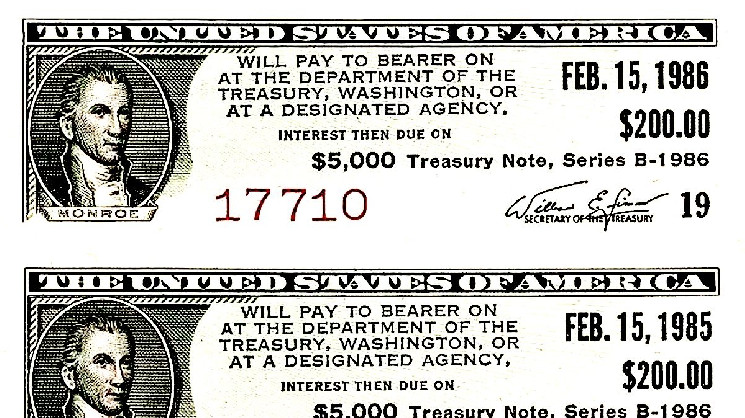
M^0 white paper has set rules to allow crypto institutions to mint and issue fully decentralized and fungible stablecoins backed by U.S. Treasury bills.
The team is backed by Pantera and led by stablecoin pioneers from MakerDAO and Circle.
The M^0 protocol aims to recreate the $5 trillion-$20 trillion offshore dollar market for the digital age.
M^0 (pronounced “M Zero”), a protocol that allows global institutions to mint fungible T-bills backed stablecoins, has unveiled its white paper, website and other details about the protocol.
The team, which includes heavy-hitting stablecoin pioneers from MakerDAO and Circle, emerged from stealth last year with a muscular $22.5 million seed round led by Pantera Capital.
The current trend for tokenization has seen a proliferation of blockchain-based Treasuries and other exotic items, such as yield-bearing stablecoins, being built by everyone from start-ups to Wall Street banks.
But these firms are simply creating more and more of their products shipped on-chain, said M^0 Labs CEO Luca Prosperi, who believes a centralized party should not mint stablecoins and should not continue to fractionalize liquidity. As such, M^0 takes some of the original ideas of MakerDAO, where Prosperi was a community leader, but makes that vision more institutional.
“We’re trying to recreate networks, with rules and smart contracts for people to interact and produce digital assets,” Prosperi said in an interview. “Think about the protocol as a governor of the Eurodollar system; so, a set of rules that can allow a new generation of offshore dollar players to come and interact. The protocol collects certain fees that are then distributed on-chain to various actors for their participation, but most of the upside is staying with the actors that actually interact with it.”
M^0 is targeting the $5 trillion-$20 trillion offshore dollar market, Prosperi said.
It’s “pretty ridiculous” that stablecoins are not interoperable, said M^0 Labs Chief Strategy Officer Joao Reginatto, the former VP of stablecoins at Circle.
“Some people are trying to reposition their stablecoin projects as infrastructure, but these pitches are still superficial,” Reginatto said in an interview. “You can’t call it infrastructure if you have to be married to the issuer. We think the answer is to have multi-issuance, where an issuer in its respective jurisdiction complies with the individual regime, and have them all issue fungible tokens.”
The M^0 protocol will go live in Q2 2024. The expected initial user base includes crypto-friendly institutions, funds invested in decentralized finance (DeFi), and market makers. The future, however, is for protocols to become the back-end of financial technology companies, Prosperi said.
“Our dream users are not banks; our infrastructure is a kind of money middleware for the digital age that intends to bypass and improve part of the banking system,” he said.
